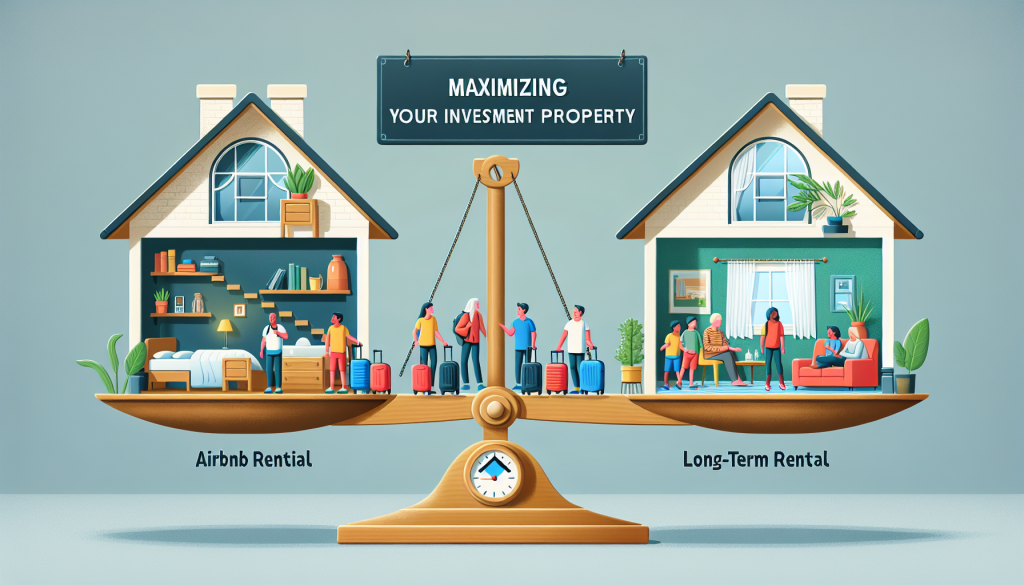
Airbnb vs. Long-Term Rentals: Maximizing Your Investment Property
Are you a property owner looking to maximize your investment earnings? The rise of vacation rental platforms like Airbnb has opened up a new world of opportunities for property owners, allowing them to earn additional income from their investment properties. But with traditional long-term rentals still a popular choice, which option is the best for maximizing your investment property? In this article, we will dive deep into the world of Airbnb and long-term rentals, and help you decide which option is the best for you.
The Rise of Airbnb
Airbnb has taken the hospitality industry by storm, offering travelers a unique and personalized experience while allowing property owners to earn income from their unused spaces. With over 150 million users worldwide, Airbnb has become a popular choice for travelers looking for affordable and unique accommodations.
As a property owner, Airbnb offers you the opportunity to earn additional income from your investment property by renting it out on a short-term basis. This can be especially beneficial for properties located in popular tourist destinations, where the demand for short-term rentals is high.
The Benefits of Airbnb
So, what makes Airbnb such an attractive option for property owners? One of the main benefits is the potential for higher rental income. With Airbnb, you have the flexibility to set your own rates and adjust them according to demand, which can result in higher profits compared to traditional long-term rentals.
Additionally, Airbnb also takes care of the marketing and advertising for your property, making it easier for you to reach a larger audience and attract potential guests. The platform also offers a secure payment system, making it easier for property owners to receive payments from guests without any hassle.
Furthermore, hosting guests on Airbnb can also help you build a strong online presence and improve your property’s reputation, leading to more bookings and higher occupancy rates.
The Appeal of Long-Term Rentals
On the other hand, long-term rentals offer a more stable and consistent source of income for property owners. With long-term rentals, you have a guaranteed rental income for a set period of time, usually on a monthly basis. This can be beneficial for properties located in areas with a steady demand for rental properties, such as urban areas with a high population.
Moreover, long-term rentals usually involve less management and maintenance compared to short-term rentals. This means less time and effort spent on preparing the property for new guests and dealing with turnovers.
The Drawbacks of Each Option
While Airbnb and long-term rentals both offer their own set of benefits, they also come with their own drawbacks. With Airbnb, there is a higher risk of potential damage to your property due to short-term guests, as well as potential legal complications in certain areas that regulate short-term rentals.
On the other hand, long-term rentals may result in lower rental income compared to Airbnb. Additionally, having long-term tenants means less flexibility in terms of adjusting rental rates and managing guest turnover.
The Best Option for You
When it comes to deciding between Airbnb and long-term rentals, it ultimately depends on your property’s location, your personal preferences, and your investment goals. If you have a property in a popular tourist destination and are looking for higher rental income, Airbnb may be the best option for you. On the other hand, if you prefer a more stable and long-term source of income, long-term rentals may be a better fit.
Ultimately, the key to maximizing your investment property’s earning potential is to carefully consider all factors and choose the option that aligns with your goals.
Conclusion
In today’s digital age, property owners have multiple options for maximizing their investment earnings, including Airbnb and long-term rentals. While both options have their own set of benefits and drawbacks, there is no one-size-fits-all solution. It’s important to carefully evaluate your property and investment goals to determine which option is the best for you. Whichever option you choose, make sure to stay informed and up-to-date with market trends and regulations to make the most out of your investment property.
